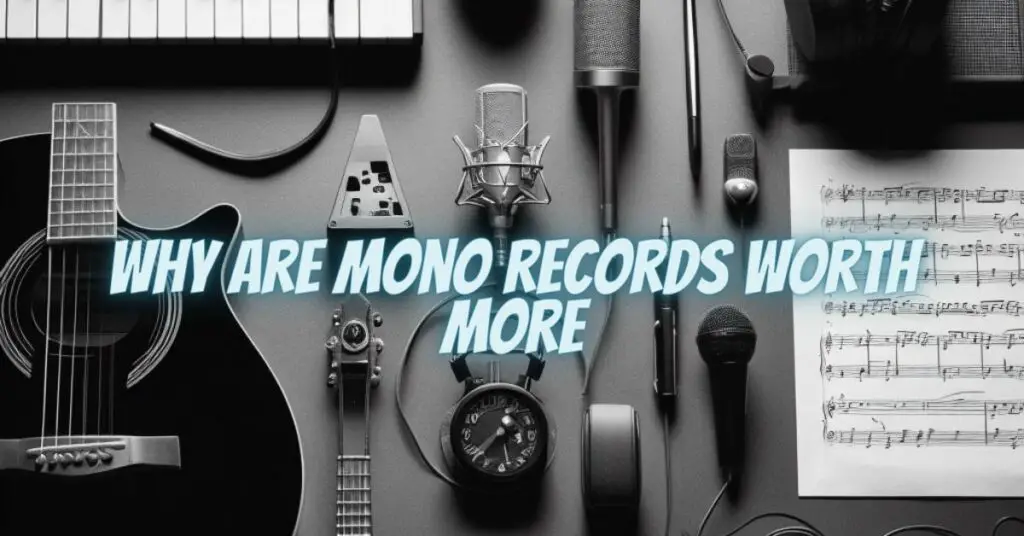Mono records, once the standard in music recording, have become highly sought after by collectors and audiophiles. Despite the widespread adoption of stereo sound, mono records often command higher prices on the market. Here are the key reasons why mono records are worth more.
1. Historical Significance
- Early Recording Standard:
- Pre-1960s Dominance: Mono was the dominant format for music recording and playback until the late 1960s. Many classic albums and iconic recordings were originally released in mono, making these records significant pieces of music history.
- Cultural Legacy: Mono records capture the essence of an era when the music industry was evolving, and many legendary artists were making their mark. Collectors value these records for their historical and cultural importance.
2. Rarity and Collectibility
- Limited Production:
- Shift to Stereo: As the music industry transitioned to stereo recordings in the late 1960s, mono records were phased out. This shift resulted in fewer mono records being produced, especially for albums released during the transitional period.
- Scarcity: The limited availability of mono records makes them rare collectibles. Collectors are often willing to pay a premium for these hard-to-find records, especially those in good condition.
- Collector’s Appeal:
- Original Pressings: Original mono pressings are particularly valuable to collectors. They represent the first releases of significant albums and often feature unique cover art and packaging that differ from later stereo reissues.
- Authenticity: For many collectors, owning an original mono pressing is akin to owning a piece of music history. The authenticity and provenance of these records add to their desirability and value.
3. Audio Quality and Preference
- Original Mixes:
- Artist Intent: Many albums from the mono era were mixed and mastered specifically for mono playback. The mono mixes often reflect the artist’s and producer’s original vision, providing a more authentic listening experience.
- Mix Differences: Mono mixes can differ significantly from their stereo counterparts. Some listeners prefer the punchier, more direct sound of mono mixes, which can offer a different and sometimes more cohesive presentation of the music.
- Sound Characteristics:
- Unified Sound: Mono records deliver a consistent sound experience across different listening environments. The single-channel audio can provide a focused and powerful listening experience, with all elements of the mix presented equally.
- Historical Accuracy: Audiophiles who appreciate the historical context of music production often seek out mono records to hear the music as it was originally intended to be heard.
4. Nostalgia and Emotional Connection
- Nostalgic Value:
- Vintage Appeal: Mono records evoke nostalgia for an earlier era of music. Collectors and older listeners may have a sentimental attachment to the mono format, recalling the days when they first heard these recordings.
- Cultural Memory: Mono records are tied to the memories of the time they were released, often associated with significant cultural and personal milestones. This emotional connection enhances their value.
- Timeless Appeal:
- Enduring Popularity: Despite advances in audio technology, the charm and character of mono records have endured. They continue to attract new generations of listeners and collectors who appreciate their unique qualities.
Conclusion
Mono records are worth more due to their historical significance, rarity, and collectibility. The original mixes and audio quality preferred by some listeners, combined with the nostalgia and emotional connection they evoke, make them highly desirable. As tangible pieces of music history, mono records offer a unique listening experience and a direct link to the past, justifying their higher market value. Whether for their sound, cultural impact, or collectible nature, mono records continue to hold a special place in the hearts of music enthusiasts and collectors.

